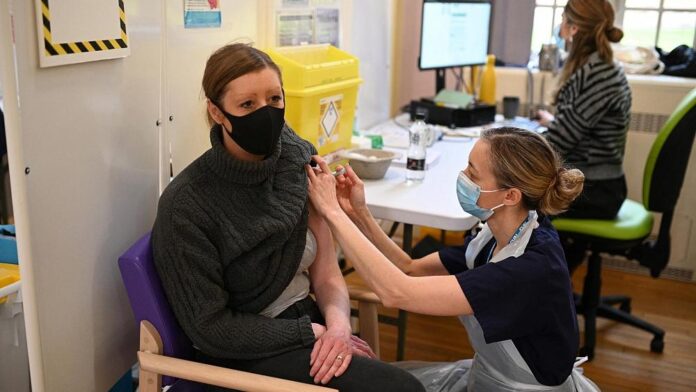With summer approaching and entry rules easing, many of us are now looking to dust off our suitcases to travel abroad.
But for some, there has been a rude awakening when arriving at international borders. While you might be considered fully vaccinated in your own country, what this means can be different elsewhere.
It is these minor technicalities that often catch out travellers, leading to a ruined holiday and extra expenses when they reach their destinations. So it’s best to check before you go that you don’t need a booster jab or special documentation that isn’t required in your own country.
To help you out, here is a rundown of what counts as fully vaccinated in some of Europe’s most popular holiday destinations.
What counts as vaccinated in Portugal?
To enter Portugal, your vaccination certificate must show one of two things:
- A full course of an approved vaccine at least 14 days and no more than 270 days before you arrive.
- A full course of vaccine plus a booster jab at least 14 days before you arrive.
You’re considered fully vaccinated if you fulfil any of these criteria:
- You’ve had both doses of a two-dose vaccine or a combination of two different vaccines
- An approved one-dose vaccine
- A full course of a vaccine plus a booster jab
If you caught COVID-19 after one dose of a two-dose vaccine and your certificate shows your course as complete.
The 270-day expiry date doesn’t apply to those over the age of 12 and under the age of 18 – meaning children are still considered vaccinated even if more time has passed since their last dose.
The vaccination you received must be authorised by the European Medicines Agency (EMA) or the World Health Organisation (WHO) – a full list can be found here. Certificates with other types of vaccines are accepted but your last dose must have been one of the authorised ones.
What counts as vaccinated in Spain?
In order to be considered fully vaccinated by the Spanish government, all travellers must have received their second jab at least 14 days prior to their trip.
You must be vaccinated with a complete course of a vaccine approved by the WHO or EMA.
And since 1 February 2022, in line with other EU countries, Spain has set an expiration date of 270 days on vaccine passports. This means booster jabs will be required if your second jab was more than nine months ago.
But if you receive any further booster jabs after your initial course, you won’t have to wait 14 days before entering the country and they don’t ever expire.
Children under the age of 12 do not need to show proof of vaccination to travel to Spain.
What counts as fully vaccinated in France?
In France, the entry rules for travellers are a bit different to the rules inside the country. To enter, you’ll need a vaccination certificate that conforms to EU standards. This means your final dose must have been administered:
- Seven days before you travel for Oxford/AstraZeneca, Pfizer/BioNTech, Moderna
- 28 days before you travel for a second dose of Johnson & Johnson
Anyone over 18 must have completed their initial course of vaccinations within the last nine months. If it has been longer than nine months, you’ll have to receive a booster jab before you travel or be treated as unvaccinated under French rules.
But things are a bit different in domestic settings. From 15 February, anyone over the age of 18 years and 1 month needs to have received a booster dose within four months of their initial vaccination course to be considered fully vaccinated inside of France.
You don’t need this to enter the country but you may need it to get a ‘pass sanitaire’. This is used to access hospitals, clinics, medical healthcare facilities, retirement homes, nursing homes and establishments for people with disabilities.
What counts as fully vaccinated in Italy?
To count as fully vaccinated to travel to Italy you’ll need either:
A primary vaccination certificate that is valid for 270 days from the last dose for those who have had a full course of an EMA approved vaccination.
Or a certificate valid indefinitely, for those who have had a full course plus a booster jab.
If you had either both doses of a two-dose vaccine, or one dose of a single dose vaccine, more than 270 days ago, you are not considered vaccinated and will have to follow the same rules as an unvaccinated traveller.
Children aged six and over have to follow the rules for adult travellers.
You may also need proof of your vaccination status once you arrive in Italy with the Super Green Pass required to access certain venues. This includes indoor swimming pools and gyms, theatres, nightclubs, indoor restaurants and casinos.
What counts as fully vaccinated in the UK?
The UK has removed all entry rules for travel into the country meaning it does not matter if you are vaccinated or not.
But in case you need to know when in the country, fully vaccinated in the UK means that you’ve completed a course of an approved COVID-19 vaccination – whether that is a single dose or double dose vaccine. You can find the UK’s list of approved vaccines here.
You’ll need to have received the full course of vaccinations more than two weeks before you travel. The day you received your final dose does not count as one of those days.
It is acceptable to ‘mix and match’ doses of two approved vaccines and to have received these doses in different countries, as long as they are on the UK’s list of recognised countries.
All under-18s count as fully vaccinated regardless of their actual vaccination status. Proof of recovery from a previous infection is not a valid alternative in the UK.
What counts as fully vaccinated in Turkey?
To qualify as fully vaccinated for travel to Turkey you’ll need a document certifying that you have completed a full course of one of the vaccinations approved by the Turkish Ministry of Health or the World Health Organisation.
The final dose must have been taken 14 days before you arrive in Turkey. This applies to everyone over the age of 12.
What counts as fully vaccinated in Greece?
Entry rules for Greece apply whether you are vaccinated or not, so your vaccination status won’t necessarily affect travel to the country. There may, however, be a few more steps if you are unvaccinated.
In Greece, fully vaccinated means that you hold a valid vaccination certificate showing you have completed a full course of an approved vaccine at least 14 days before you travel. A list of approved vaccines can be found here.
If you are over 18 and you completed your full course of vaccination more than 9 months before you arrive, then you are considered unvaccinated.
If this is the case then you’ll need to get a booster jab – these are not subject to the same time restrictions as your initial course.
Your vaccination status may also be needed in some ‘domestic’ situations such as on public transport, in nightclubs and at conferences. If you don’t count as fully vaccinated, you may have to take a COVID test in these situations.













